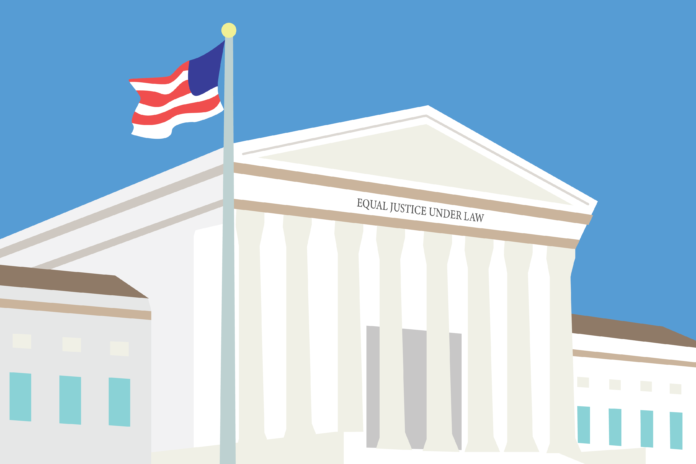Their statements highlighted the challenges that underrepresented students may face without affirmative action
By LILY FREEMAN — campus@theaggie.org
June 29 marked a historic decision made by the Supreme Court that deemed the use of affirmative action in college admissions unlawful. The decision, according to the majority opinion written by Chief Justice John G. Roberts Jr., ruled race-based admission policies at both Harvard and the University of North Carolina a violation of the Equal Protection Clause of the Constitution’s Fourteenth Amendment.
“The Harvard and U.N.C. admissions programs cannot be reconciled with the guarantees of the Equal Protection Clause,” Chief Justice Roberts said in the majority opinion. “Both programs lack sufficiently focused and measurable objectives warranting the use of race, unavoidably employ race in a negative manner, involve racial stereotyping and lack meaningful endpoints. We have never permitted admissions programs to work in that way, and we will not do so today.”
The consideration of race in college admissions was banned in California 27 years ago through Proposition 209, meaning that University of California will not be directly impacted by this ruling. However, in response to the Supreme Court decision, University of California (UC) President Michael Drake issued a statement that began with the following.
“We are disappointed in the U.S. Supreme Court’s decision to bar the use of race in college admissions, a valuable practice that has helped higher education institutions increase diversity and address historical wrongs over the past several decades,” Drake said.
In his statement, Drake also said that a diverse student body leads to enhanced quality of instructional and educational outcomes, community benefits and fairness.
“The consideration of race was not the conclusive solution to inequities in college admissions, but it was a necessary pathway to addressing systemic deficiencies,” Drake said. “Without it, we must work much harder to identify and address the root causes of societal inequities that hinder diverse students in pursuing and achieving a higher education.”
Drake’s statement concluded with the notion that student diversity remains a top priority for the University of California, even in the wake of the Supreme Court decision.
“The University of California continues to work to create clearer pathways to college and to address inequality in admissions,” Drake said. “We stand ready to share our expertise and lessons learned as we collaborate with our partners to achieve a higher education landscape that reflects the rich diversity of our nation.”
UC Davis Chancellor Gary May also issued a response to the ruling.
“In track and field, the ‘staggered start’ is a mechanism used to account for the fact that runners in the outer lanes of the track have a longer distance to run than those in the inner lanes,” May said in his statement. “Like the staggered start, affirmative action is intended to account for historical inequities experienced by marginalized communities in higher education and other endeavors. Today, the Supreme Court has decided that this tool is no longer appropriate.”
May’s statement went on to say that opportunities available for underrepresented students may become fewer as a result of the decision to end affirmative action.
“I worry that underrepresented students of color and women will find more challenges and obstacles on their way to fields like mine, engineering, and in other science and technology fields,” May said. “Without programs that engage students early in their education and encourage them to persist in fields they may not have seen as available to them, our nation may further neglect nurturing intellectual diversity and promote a lack of inclusivity. That takes the country backward, not forward.”
Regardless of the decision to end the use of race in college admissions, according to May’s statement, UC Davis will “continue to provide equitable access to all Californians.”
“We are committed to the notion that a college degree holds a transformative power to shape a person’s life, no matter what their background or circumstances are and no matter what barriers they may face in their academic journey,” May said. “No more stagger? We’ll just have to run faster.”
Written by: Lily Freeman — campus@theaggie.org










